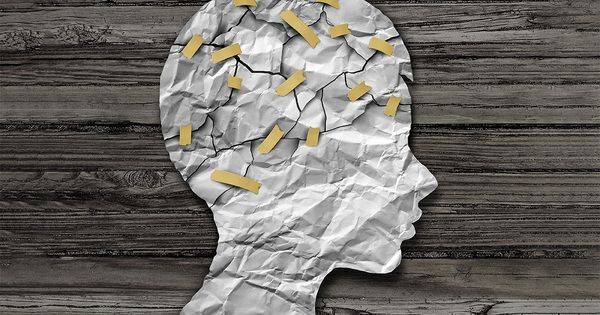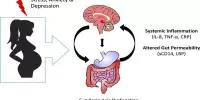People who have suffered traumatic events in childhood, such as abuse, neglect, or household dysfunction, may be more prone to develop headache disorders as adults, according to a meta-analysis published online in Neurology®, the medical journal of the American Academy of Neurology. This study does not prove that such events cause headaches; it only establishes a connection.
“Traumatic events in childhood can have serious health implications later in life,” said study author Catherine Kreatsoulas, PhD, of Harvard T.H. Chan School of Public Health in Boston, Massachusetts. “Our meta-analysis confirms that childhood traumatic events are important risk factors for headache disorders in adulthood, including migraine, tension headaches, cluster headaches, and chronic or severe headaches. This is a risk factor that we cannot ignore.”
The meta-analysis involved 28 studies, including 154,739 participants across 19 countries.
Our meta-analysis confirms that childhood traumatic events are important risk factors for headache disorders in adulthood, including migraine, tension headaches, cluster headaches, and chronic or severe headaches. This is a risk factor that we cannot ignore.
Catherine Kreatsoulas
Of the total patients, 48,625 (31%) reported at least one traumatic childhood incident, and 24,956 (16%) were diagnosed with main headaches. Among those who had at least one traumatic childhood incident, 26% were diagnosed with a primary headache problem, compared to 12% of those who did not have any traumatic childhood events.
Researchers discovered that those who had experienced one or more traumatic childhood events were 48% more likely to have headache disorders than those who had not.
They also found that as the number of traumatic childhood events increased, the odds of having headaches also increased. When compared to people who have not experienced childhood trauma, people who had experienced one type of traumatic event had a 24% increased risk of a headache disorder, while people who had experienced four or more types of traumatic events were more than twice as likely to have a headache disorder.

Researchers also investigated the relationship between different types of stressful childhood occurrences. Threat traumas included physical assault, sexual abuse, emotional abuse, witnessing or threatening violence, and major family problems. Neglect, economic adversity, having a household member incarcerated, divorce or separation, parental death, and living in a household with mental illness, chronic disability or disease, or alcohol or substance misuse were all considered deprivation traumas.
They found that threat traumas were linked to a 46% increase in headaches and deprivation traumas were linked to a 35% increase in headaches. Among the top types of threat traumas, experiencing physical and sexual abuse was linked to a 60% increased risk for headaches; among deprivation traumas, those who experienced neglect in childhood had an almost three-fold increased risk for headache disorders.
“This meta-analysis highlights that childhood traumatic events categorized as threat or deprivation traumas are important and independent risk factors for headache disorders in adulthood,” Kreatsoulas stated in a press release. “Identifying certain sorts of childhood experiences can assist guide prevention and treatment options for one of the world’s most common debilitating disorders. Addressing these underlying traumatic childhood traumas requires a comprehensive public health plan as well as therapeutic intervention measures.
“It is important to note that the true estimate of the association is likely higher due to the sensitive nature of reporting childhood traumatic events,” he said.
















